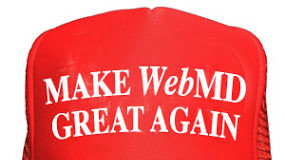As reported in today’s Wall Street Journal:
“An editorial published in the New England Journal of Medicine raises questions about the overall effectiveness of Merck & Co.’s cervical-cancer vaccine, Gardasil, and advises policymakers, doctors and parents to adopt “a cautious approach” toward vaccination. (See “Medical Journal Questions Gardasil Efficacy“).
At issue is how effective Gardasil actually is. As always, it comes down to analysis of the data and which expert you believe.
Whereas Merck claims 98% efficacy against 2 types of HPV virus that cause cervical cancer, this drops to 17% when looking at data from another group and the authors of the NEJM editorial called the vaccine’s overall efficacy against precancerous lesions of the cervix “modest.”
This is not the message that Merck delivers through its DTC advertising, which leads viewers to believe that Gardasil is a cure for cervical cancer.
When Gardasil first came to market,like many other people, I was excited to see a pharmaceutical product that could actually save lives in a dramatic fashion by preventing disease, not just treating the symptoms.
Now it seems that I, and millions of others (including certain state governors and legislators) may have been duped or misled by the hype promulgated by the ads.
But, still, my main complaint isn’t against the advertising — after all, it’s advertising job to hype the product (see “Is Pharmaceutical Marketing BS?“).
The main issue I have of Merck’s Gardasil campaign has to do with its lobbying efforts to pass mandatory vaccination laws in every state (see “Gardasil: To Be Mandatory or Not To Be Mandatory — That is the Question“).
It now appears that Merck was forced to unethically promote mandatory vaccination to milk the potential Gardasil profits before scientific evidence questioning the vaccine’s efficacy hit the press and before more efficacious competing products are approved (see “Glaxo: HPV Vaccine Data Bests Merck“).
I guess marketing and advertising alone cannot guarantee a drug’s success these days. Merck’s questionable lobbying practices, however, have also put its DTC advertising under the public microscope.
Perhaps it’s time for Merck to change the Gardasil ads to be a little closer to the recent type of ad that Pfizer ran for Celebrex — at least more transparent about the effectiveness of Gardasil and answering some of the questions that are now being raised, including:
- How is Gradasil efficacy defined? (ie, more transparency about what the 98% efficacy number means)
- How long does the protection conferred by the vaccine last?
- Could the current recommendation of three vaccinations be lowered?
In other words, a little less BS in DTC advertising, please!
One other thing that may help Merck’s cause: promote what it’s doing to help free vaccination programs supported by some states. Free is better than mandatory, as long as education (see above) is part of the program.









![6 Digital Tools at the Center of Healthcare Digitalization [INFOGRAPHIC]](http://ec2-54-175-84-28.compute-1.amazonaws.com/pharma-mkting.com/wp-content/uploads/2021/04/6DigitalTools_600px-100x70.jpg)




